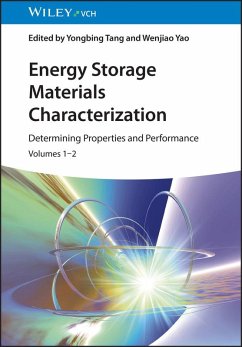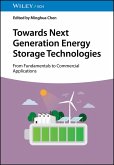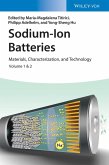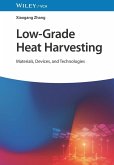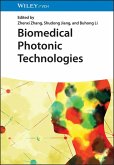Comprehensive summary of the properties and performance of experimental analytical techniques for a wide range of electrochemical energy storage materials
Energy Storage Materials Characterization summarizes the basic methods used to determine the properties and performance of energy storage materials and details a wide range of techniques used in electrochemical testing, including X-ray, neutron, optical, microwave, electron, and scanning probe techniques. Representative examples of each technique are presented to illustrate their powerful capabilities and offer a general strategy for future development of the original techniques.
Preceding the main text, a helpful introduction covers topics including the overall energy consumption structure of the modern world, various existing forms of energy and electrochemical energy storage, known problems with energy storage materials such as lithium-ion batteries, and specifics of electrochemical impedance spectroscopy (EIS).
Written by two highly qualified academics with significant research experience in the field, Energy Storage Materials Characterization includes information such as:
Energy Storage Materials Characterization is an essential up-to-date reference on the subject for chemists and materials scientists involved in research related to improving electrochemical energy storage systems for superior battery performance.
Energy Storage Materials Characterization summarizes the basic methods used to determine the properties and performance of energy storage materials and details a wide range of techniques used in electrochemical testing, including X-ray, neutron, optical, microwave, electron, and scanning probe techniques. Representative examples of each technique are presented to illustrate their powerful capabilities and offer a general strategy for future development of the original techniques.
Preceding the main text, a helpful introduction covers topics including the overall energy consumption structure of the modern world, various existing forms of energy and electrochemical energy storage, known problems with energy storage materials such as lithium-ion batteries, and specifics of electrochemical impedance spectroscopy (EIS).
Written by two highly qualified academics with significant research experience in the field, Energy Storage Materials Characterization includes information such as:
- Photoemission spectroscopy, X-ray pair distribution function to investigate battery systems, and cryo-electron microscopy
- X-ray diffraction, absorption spectroscopy, fluorescence and tomography microscopy, and neutron scattering, depth profile, and imaging
- UV-Vis spectroscopy for energy storage and related materials, Raman spectroscopy, Fourier transform infrared spectroscopy, and optical microscopy
- Structural and chemical characterization of alkali-ion battery materials using electron energy-loss spectroscopy coupled with transmission electron microscopy
Energy Storage Materials Characterization is an essential up-to-date reference on the subject for chemists and materials scientists involved in research related to improving electrochemical energy storage systems for superior battery performance.
Dieser Download kann aus rechtlichen Gründen nur mit Rechnungsadresse in D ausgeliefert werden.

